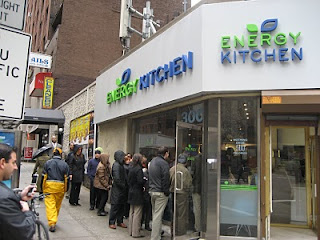Following up on last week’s post, I ponder the question: so I wrote a book, but why???
Reason #2: I’m pretty sick of hearing about will power
I wrote this book for every person who has ever had to listen to the sanctimonious admonition: “Get some discipline, eat less and move more. It’s simple!”
My response to this admonition: put a sock in it.
It makes me more than a little crazy the way obesity is over-simplified. Let’s start with some basic logic: very few people struggling with obesity are particularly happy about that fact. I know I wasn’t. The notion that it’s easy if we were all just a little bit less lazy is a bad combination of being 1) wrong and 2) incredibly harmful. If it was easy and straight forward, I think we can all reasonably expect that we would not have an obesity epidemic on our hands.
Fact #1: obesity levels are much higher today than they were 30 years ago.
Fact #2: the availability to food anywhere, anytime has expanded just as fast as our waistlines.
Fact #3: We live in an environment that conspires to encourage us over-eat.
Fact #4: our brains aren’t really helping the matter.
So if the answer is complicated, what can we do about it?
Most of what is written about dealing with weight is in the form of nutritional theory, usually in the form of regimented meal plans that are frankly hard to live with. There is no shortage of diet books constantly streaming into the marketplace focusing on the finer points of nutritional theory. Cut out fat. No wait, cut out carbs. Eat nuts.
 |
| Don't fight the Tractor Beam. Find your inner Obi Wan and shut the bad boy down. |
Over the past few years, I’ve been pretty heavily influenced by a lot of different writers and researchers in this topic. Some of them are the writers: Tara Parker Pope, Mark Bittman, Michael Polan, and more recently, Charles Duhigg. Many of them are behavioral economists and psychologists such as Brian Wansink, Richard Thaler, Kevin Volpp, B.J. Fogg and many others.
When it comes to what we really need to know about nutrition, I would argue that much of what we need to know is pretty uncomplicated. The new Dietary Guidelines for Americans (aka MyPlate) got it pretty right: fill half your plate with fruits and vegetables and the rest with lean proteins and whole grains. Have low-fat dairy. Minimize junk food. Watch portion size. Exercise daily. Repeat.
If knowing what we should ultimately eat is straight forward, knowing how to make it happen in life is a lot trickier. It’s not easy to make those noble decisions when we are staring down our most dreaded food temptation.
This brings me back to the book. I started writing the blog when I became a Lifetime Member of Weight Watchers (i.e., reached my goal weight). Everything I’ve talked about or thought about over the past three years has had to do with learning to live with my new lifestyle. It wasn’t until I got to maintenance that I really began to understand what was necessary to try to change my life patterns for good (and better). In fact, if I knew what I’ve learned in the last three years of maintenance when I started Weight Watchers, it would not have taken me nine years to reach my goal weight.
Therefore, in this book, expect to hear a lot more about changing habits, managing our personal environments and establishing new healthy routines. The promise is to make healthy decisions easier, and ideally automatic.
Important announcement redux
As noted in the last post, all author proceeds of the book go to Share Our Strength (www.strength.org) to benefit their No Kid Hungry campaign.
Here are the Amazon and Barnes & Noble have links active for pre-order. I’m told there will be electronic versions as of the on-sale date (I’m still confirming this…)
Here are the pre-order links...
Amazon: http://www.amazon.com/Weight-Loss-Boss-Losing----Control/dp/1609619013/ref=sr_1_1?s=books&ie=UTF8&qid=1332511698&sr=1-1
Barnes & Noble: http://www.barnesandnoble.com/w/weight-loss-boss-david-kirchhoff/1108642892?ean=9781609619015&itm=1&usri=weight+loss+boss
Books a Million: http://www.booksamillion.com/p/Weight-Loss-Boss/David-Kirchhoff/9781609619015?id=5325115807116
Cheers,
dk


